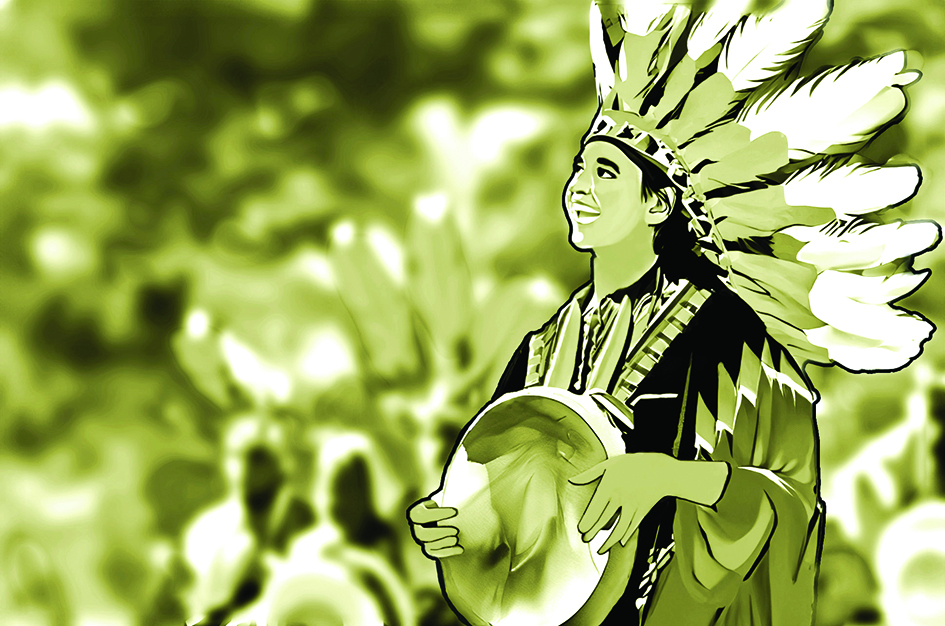Indigenous Way of Life: Simplicity is The Secret to Happiness
Indigenous approaches to life teach us ways to fill our hearts fuller.
When the word ‘Indigenous’ comes up, many first think of land acknowledgement or Indigenous history. But have you ever thought of the simple pleasures their holistic approach to life can bring? Let’s look at some lessons we can learn from the Indigenous community to take our happiness to the next level.
Synchronizing with Nature
It is well-known that Indigenous people spend a lot of time in nature, whether it is while they are hunting game or gathering materials. They value their connection with nature immensely. This lifestyle contributes much to their well-being. A good example is how Indigenous communities align their lifestyle with seasonal changes.
Many Indigenous communities traditionally spend spring and summer preparing for the oncoming winter. They start their preparations in spring, as they start planting their crops. The summer was used for harvesting crops, hunting, and fishing to gather more food and resources for the winter.
Despite the dangers of the winter, the Indigenous people viewed the winter as a slower, calmer “resting season” that nature offers us. As Webb Bennett of the Gitselasu First Nation near Terrace, B.C., explains, “Winter was mainly our time to hunker down and feast, sing, dance and tell stories that taught our children about our culture and language.”
It is easy to feel down and unmotivated during winter with the freezing weather and limited daylight. But if we start to view winter the way Indigenous communities do, we might be able to appreciate the slower, calmer “resting season” that nature offers us.
Community
As humans, we are built to live in a community with support and love from others. We need to build strong relationships with others and help each other in times of need. Indigenous communities placed particular importance on building strong relationships with each other. One example is the Indigenous community’s storytelling traditions.
Stories are crucial for Indigenous communities to pay tribute to their ancestors’ endeavours and pass on their culture to future generations. By honouring this tradition, people can better comprehend their history and experience their culture.
Take the Métis Oral Tradition as an example. Usually, their stories have no defined beginning, middle or end. Instead, each story is a part of the ever-growing Indigenous history. The oral tradition not only teaches listeners about the past but also creates new stories for the future.
The purpose of stories is not just to show a single perspective. Rather, the message of the story is left up to the listeners. People of different ages may interpret the story differently and take away different values from them.
Other Indigenous traditions, such as Moose Hair Embroidery and Canoe Making, are also common. They are great for people to bond with their loved ones and practice patience, as well as self-expression.
Each of these traditions has a strong underlying theme of respecting others, working together, and the idea of how we are all connected. In the current age, it might not be a bad idea to take a beat and remember how we aren’t that much different from each other.
Gratitude as a default mindset
The habit of practicing gratitude is embedded in Indigenous communities. You might have heard the phrase “giving back to the land” or instances of Indigenous communities blessing the animals they have hunted down.
These are all methods by which Indigenous people pay respect for things they receive. It is easy for us to take our daily resources for granted. But we need to appreciate all that we have, from the foods we get to enjoy each day to the land we get to go to school on.
Moreover, it is not uncommon for us to only focus on ‘getting the job done.’ On the other hand, Indigenous communities value the process, knowledge, and wisdom they gain through achieving their goals.
Take cooking as an example. Many of us might feel like it requires too much. Why cook when we can just order from Uber Eats? However, Indigenous traditions teach us that there is much beauty in the process itself.
Can you recall a time when you cooked something and thought it was the best thing you have ever eaten? That flavour is the fruit of your efforts and stems from a sense of accomplishment.
Having this appreciative mindset, no matter the time or challenges it takes to achieve your goal can bring much more positive energy to your life. After all, you do receive what you give.
These simple habits that Indigenous communities uphold focus on fulfilling the basic but crucial human needs. We might easily get out of touch with these aspects of human lives in a fast-paced city. Through learning about Indigenous culture, we could be reminded of the beauty in simplicity.

